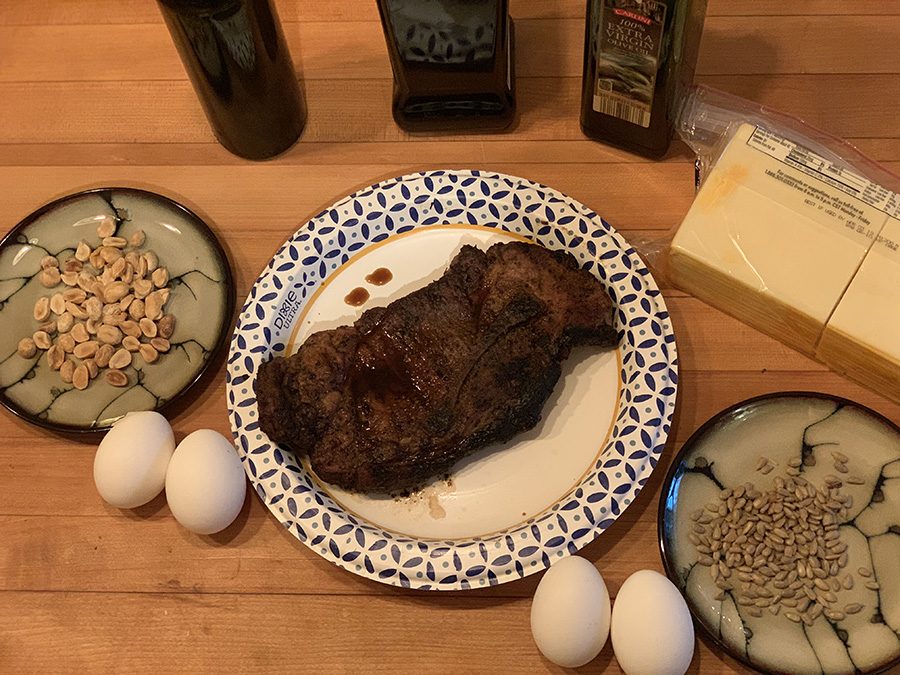Some healthy options for fats are pork steaks (fatty meats), olive oils, peanuts (any nut), seeds, cheese (not nacho cheese), and eggs (yolk). Fat is a nutritionally dense macronutrient and it should be used for a daily energy supply.
Rethinking the regimen, Part two
Fat for fuel
November 6, 2018
Every food label listed “95% fat free!” and “low fat!” is complete joke, because the macronutrient fat is the most important aspect to a person’s diet. The word ‘fat’ has had a negative connotation to it for decades, yet it’s the biggest piece to the puzzle.
Our bodies are a perfect parallel to a car as far as functionality. The one part of the car I’ll be relating to is the gas mileage. One gram of fat contains nine calories and one gram of carbohydrate contains four calories. Would you rather be driving a car that gets nine miles per gallon or four miles? Our bodies were made to run on healthy fats and the calorie count proves it.
Protein is not an energy source. Its purpose is to rebuild muscle and replace cells. Carbs are also problematic: they cause chaos. Healthy fats (monounsaturated and polyunsaturated) are good for your heart, cholesterol, and overall health. They lower the risks of heart disease, strokes, and blood pressure. The fat absorbs and carries the vitamins and minerals in your body to your brain.
You can eat healthy fats in large quantities and be perfectly fine, but it’s the bad fats that are detrimental to your health. Trans fats and saturated fats consumed in large quantities can be toxic to your body by clogging arteries, increasing inflammation, and possibly causing type two diabetes. Trans and saturated fats increase your blood sugar just like starchy carbs.
The extremes ends of blood sugar and insulin levels which occur in the metabolic syndrome are responsible for the growth of fat, specifically in and around the visceral organs (liver, pancreas, kidneys, and intestines). Visceral fat is useless fat that sits around your organs and makes it harder for them to fully operate and can increase organ failure.
Sugar (glucose) is driven into the cells until they cannot hold any more sugar, at which point the sugar is deposited in your fat cells and signaled not to burn the fat. This is a two-fold negative reaction being caused by excess blood sugar.
If 70 percent of your diet consists of healthy fat and 25 percent of protein, you’ll be a happy camper. The last 5 percent are cruciferous carbs (greens), and they’re harmless. When the majority of the diet consists of fats (remember that nine miles per gallon analogy) you’ll last longer in the day without getting hungry.

